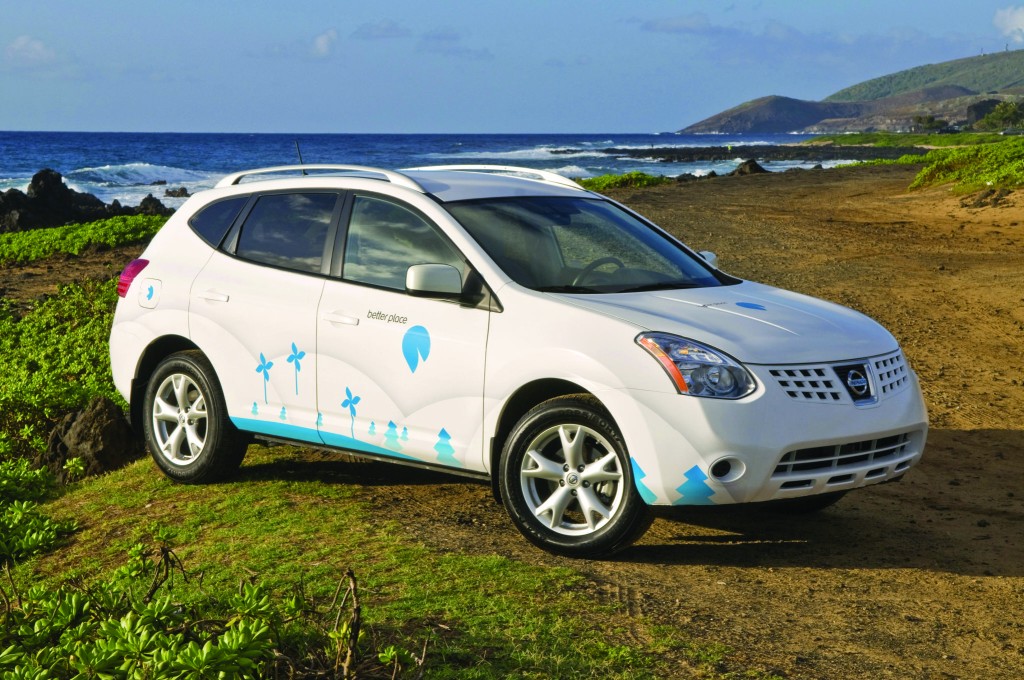One Ambitious Electric Car Venture Just Tanked, But Zero-Emissions Vehicles Aren’t Dead
Better Place burned through $850 million before crashing and burning, but the profitable Tesla just repaid its government loans nearly 10 years early

A Better Place electric car. Photo: Rosenfeld Media
Better Place, an electric car startup backed by $850 million in private funding, has filed for bankruptcy. The company aimed to have 100,000 electric vehicles on the road in Israel and Denmark by 2010, but had deployed fewer than 1,000 of the Renault Fluence Z.E. cars in Israel and just 200 in Denmark to date. IEEE Spectrum reports:
Better Place’s bankruptcy filing this last weekend is a blow not merely to the company itself and its influential backers, but to the vision of an electrified automotive future. This is because Better Place had what seemed an extremely persuasive business model and a sensible plan for developing the plan in the marketplace.
Israel and Denmark were the first testing grounds, and Better Place had already built 21 battery swapping stations in Israel, which is about the size of New Jersey. With Israel’s small size, high gas prices and start-up friendly atmosphere, the country seemed like the perfect testing grounds for introducing Better Place, the New York Times writes. But while Better Place did contend with some delays, ultimately it seems that people simply were not interested in buying the cars.
The company filed for liquidation on Sunday, citing financial difficulties. Better Place’s chief executive, Dan Cohen, spoke with the Times:
Mr. Cohen said on Sunday that the vision and the model had been right, but that the pace of market penetration had not lived up to expectations. Without a large injection of cash, he said, Better Place was unable to continue its operations.
Meanwhile, Fisker Automotive, another significant player in electric car ventures that received significant U.S. federal backing, appears to be on the edge of collapse. The Times reports, in a separate story:
On the surface, Fisker had all the trappings of a potential player in the emerging electric car industry.
Serious problems emerged almost as soon as the car hit the market.
Fisker, with its technical problems, management turmoil and mounting losses, offers a cautionary tale in the fiercely competitive arena of alternative-fuel vehicles and of government subsidies for start-up businesses.
Bankruptcy now appears unavoidable, and a political reckoning is coming.
Not every electric car is crashing, however. Tesla, whose Model S won MotorTrend’s 2013 Car of the Year award, continues to shine. The company recently paid off its Department of Energy loans nearly 10 years early, had its first profitable quarter and is enjoying skyrocketing stock prices.
More from Smithsonian.com:
Seven Reasons to Believe Electric Cars Are Getting in Gear
Electric Cars Won’t Save Us From Climate Change
/https://tf-cmsv2-smithsonianmag-media.s3.amazonaws.com/accounts/headshot/Rachel-Nuwer-240.jpg)
/https://tf-cmsv2-smithsonianmag-media.s3.amazonaws.com/accounts/headshot/Rachel-Nuwer-240.jpg)